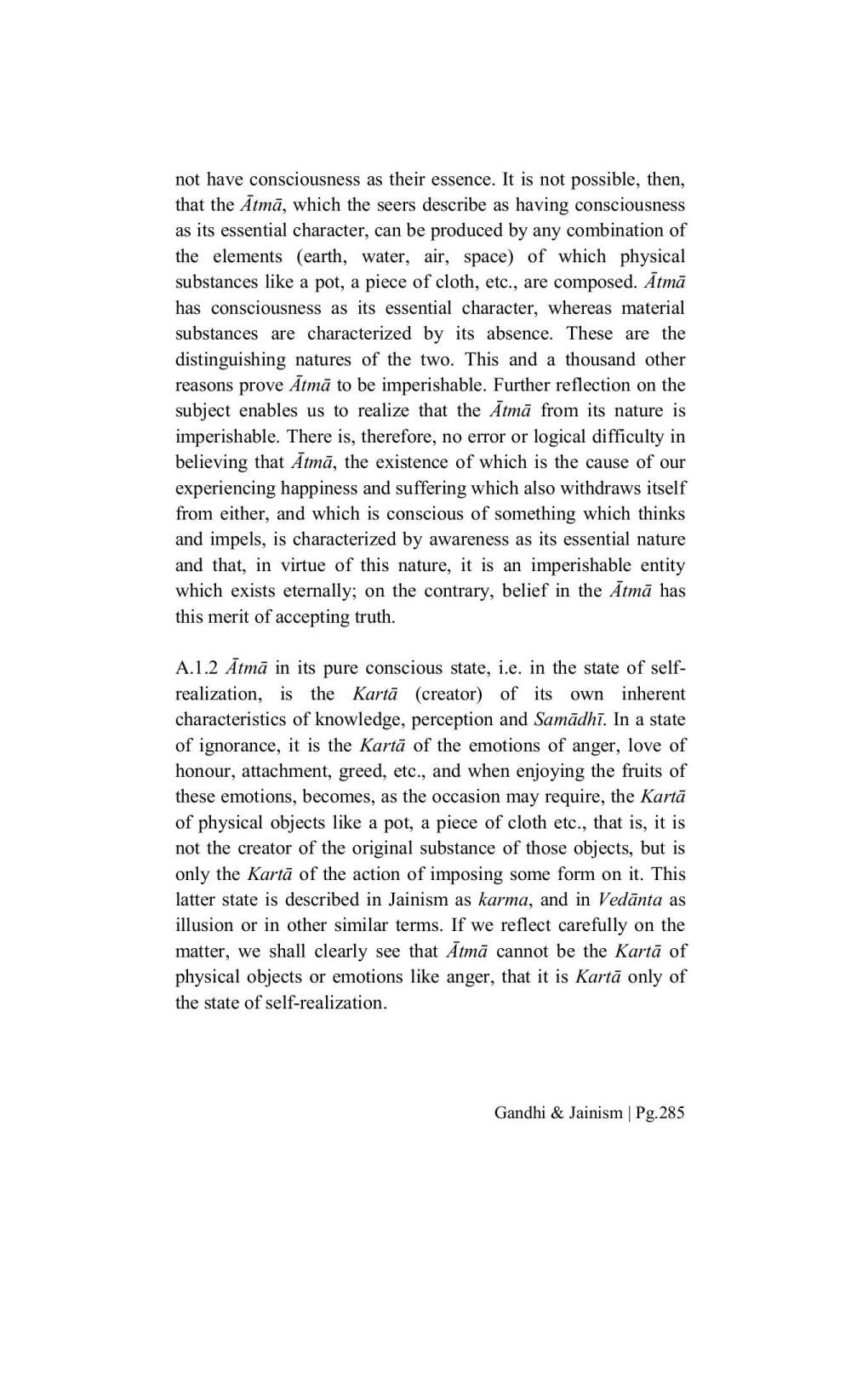________________
not have consciousness as their essence. It is not possible, then, that the Atmā, which the seers describe as having consciousness as its essential character, can be produced by any combination of the elements (earth, water, air, space) of which physical substances like a pot, a piece of cloth, etc., are composed. Atmā has consciousness as its essential character, whereas material substances are characterized by its absence. These are the distinguishing natures of the two. This and a thousand other reasons prove Ātmā to be imperishable. Further reflection on the subject enables us to realize that the Atmā from its nature is imperishable. There is, therefore, no error or logical difficulty in believing that Atmā, the existence of which is the cause of our experiencing happiness and suffering which also withdraws itself from either, and which is conscious of something which thinks and impels, is characterized by awareness as its essential nature and that, in virtue of this nature, it is an imperishable entity which exists eternally; on the contrary, belief in the Ātmā has this merit of accepting truth.
A.1.2 Ātmā in its pure conscious state, i.e. in the state of selfrealization, is the Kartā (creator) of its own inherent characteristics of knowledge, perception and Samādhi. In a state of ignorance, it is the Kartā of the emotions of anger, love of honour, attachment, greed, etc., and when enjoying the fruits of these emotions, becomes, as the occasion may require, the Kartā of physical objects like a pot, a piece of cloth etc., that is, it is not the creator of the original substance of those objects, but is only the Kartā of the action of imposing some form on it. This latter state is described in Jainism as karma, and in Vedānta as illusion or in other similar terms. If we reflect carefully on the matter, we shall clearly see that Ātmā cannot be the Kartā of physical objects or emotions like anger, that it is Kartā only of the state of self-realization.
Gandhi & Jainism
Pg.285




